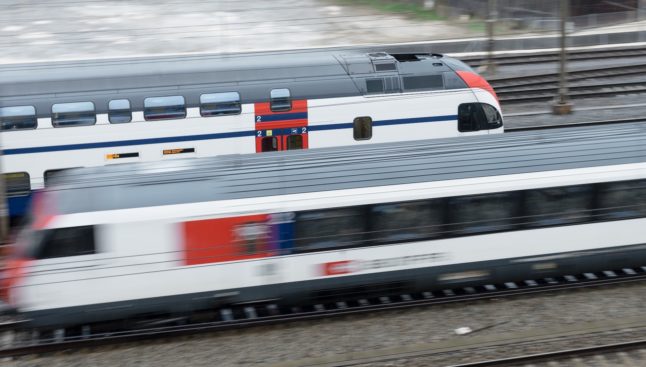Geneva to expand its public transport services
The Geneva parliament approved the cantonal government’s 2024-2028 action plan, which provides for a 29-percent increase in public transport services.
Specifically, it provides for more trams, including cross-border ones, as well as further electrification of buses.
The capacity of the Léman Express train, which covers communities in Vaud, Geneva, and neighbouring France, will also be strengthened.
This news comes just days after Geneva officials announced they will use the 1.4-million-franc budget surplus to offer free transport for people up to 24 years of age, in addition to lowering taxes.
READ ALSO: Geneva to cut taxes and make public transport free for young people
Debt can’t prevent Swiss citizenship, court rules
Though cantons have been refusing to naturalise foreigners who are subject of debt collection proceedings, a court in Aargau has ruled, in a case that has dragged on for years, that denying citizenship under such circumstances violates applicants’ rights.
This verdict came after a Kosovar woman who has lived in Switzerland for 32 years had her application for naturalisation rejected several times, due to being in debt.
The administrative court, however, accepted her appeal against this decision, ruling that the rejection due to debt enforcement is unconstitutional.
READ ALSO: Could personal debt stop you from becoming Swiss?
Price of electricity to drop next year
According to Swissgrid, which is responsible for transmitting electricity within Switzerland, prices will decrease in 2025.
“A household with an annual consumption of 4,500 kWh will pay on average 77 francs in 2025 compared to 92 francs in 2024,” the company said.
The drop will come as somewhat of a relief for Swiss consumers, who have been hit with an 18-percent price hike for 2024.
REVEALED: The most eco-friendly Easter bunnies
A Swiss consultancy firm, ESU Services, has evaluated the carbon footprint of this product, analysing three 100-gr bunnies, each made of white, milk, and dark chocolate
The decisive factor in chocolate is the milk powder and cocoa butter content, according to Niels Jungbluth, director of ESU Services.
The study looked into the amount of climate-damaging greenhouse gases, such as CO2, produced throughout the ingredient production and supply chain. The entire impact was taken into account, from the cultivation of the ingredients to the production of the chocolate, through the sale and transport, as well as the disposal of the packaging.
The analysis found that the ‘white’ bunny pollutes the environment with harmful greenhouse gases equivalent to that of a 1.7-km car journey. The milk bunny has an impact equal to driving a car for 1.5 km. The damage inflicted by the darkest one, which contains no milk powder and very little cocoa butter, equals to driving 0.9 km.
READ ALSO : How Switzerland’s gold chocolate Easter bunny took over the world
If you have any questions about life in Switzerland, ideas for articles or news tips for The Local, please get in touch with us at [email protected]



 Please whitelist us to continue reading.
Please whitelist us to continue reading.
Member comments